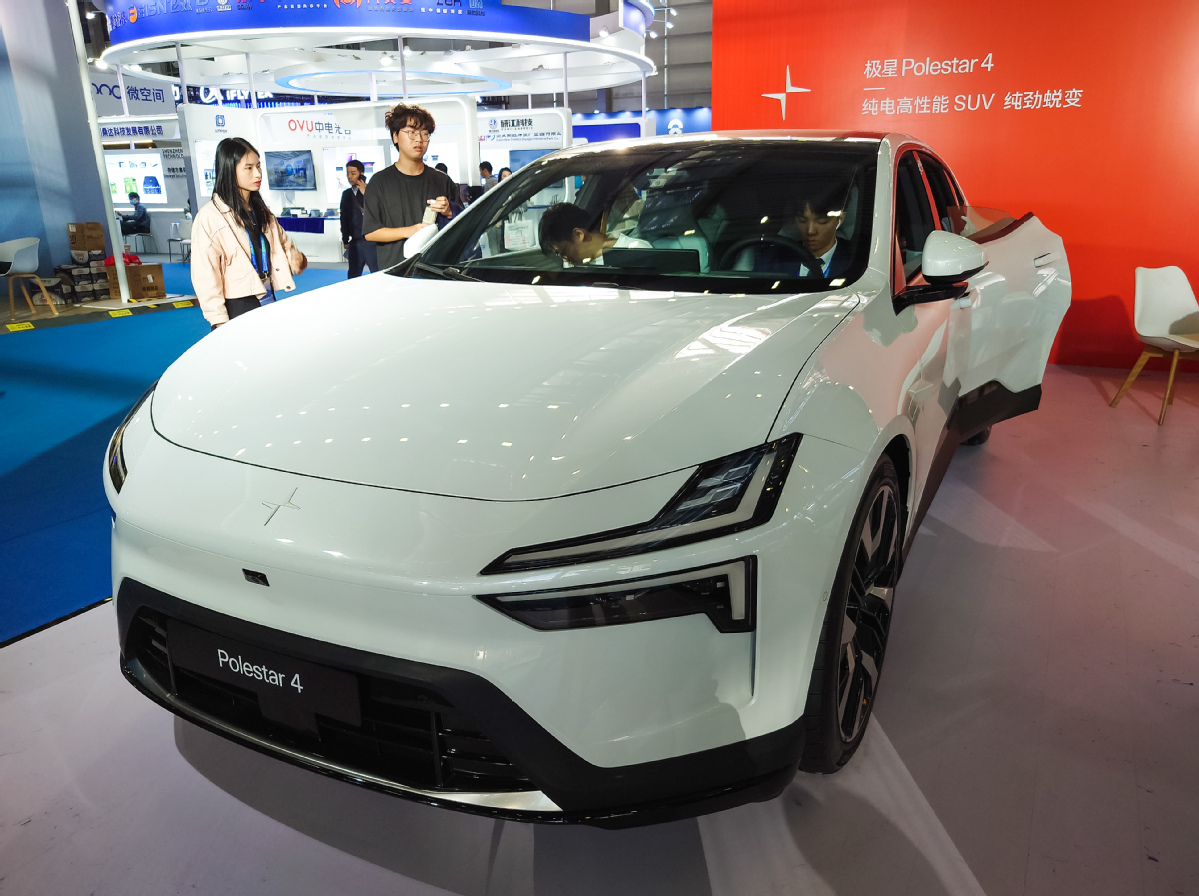
A Polestar 4 vehicle is displayed during a trade fair in Shenzhen, Guangdong province, on Friday. LIANG XIASHUN/FOR CHINA DAILY
Smart vehicles are rapidly gaining ground in China, as the automotive sector’s integration with consumer electronics accelerates, a company executive said.
The trend of automotive companies venturing into the smartphone sector is turning the concept of software-defined cars into a significant point of discussion, spurring new business opportunities, said Shen Ziyu, chairman of Xingji Meizu Group, a developer of smart terminal technologies.
According to the China Academy of Information and Communications Technology, the market for intelligent vehicles in China will approach 1 trillion yuan ($137 billion) in scale by 2025.
This trend has enthused not only traditional automakers, but also new entrants, including hardware and software developers, and smartphone companies with strong hardware and software capabilities, such as Huawei and Meizu.
Recently, the LYNK 08, the first vehicle equipped with Meizu’s in-car system Flyme Auto, was launched.
It followed the launch of AITO vehicles, which are co-developed by Seres, an automaker, and Huawei.
In September, electric vehicle maker Nio introduced its first smartphone, the Nio Phone. Positioned as a device designed for Nio vehicle owners, the phone can function as a car key and supports remote control.
“There is deep integration and robust collaboration between the automotive and consumer electronics sectors. We are also eyeing enhancing our product matrix to tap the market trend,” Shen said.
Xingji Meizu, which focuses on fields such as smart EVs and smartphones, was founded in March as a result of the merger between Meizu and Hubei Xingji Shidai Technology Co Ltd. The latter was co-launched by Geely’s chairman Li Shufu and Xingji Meizu’s Shen.
In June, Xingji Meizu announced an official collaboration with Swedish EV brand Polestar. The two firms will establish a joint venture to tap the domestic market, with Polestar holding 49 percent and Xingji Meizu owning 51 percent.
“By the end of this year, we will introduce the Polestar 4, followed by the Polestar 3 mid-next year and the Polestar 5 the year after. Simultaneously, Meizu’s mobile product line will continue to release products annually. We hope that a few Polestar vehicles can become flagship products in the mid-to-high price range, and Meizu’s smartphone brand can reclaim a position in the top five domestic phone markets within three years,” Shen said.
Apart from fostering the integration of smartphones and automobiles, Shen has also been involved in founding several companies whose products cover automotive chips and internet-connected-vehicle platforms.
“This sector primarily focuses on empowering full-stack solutions for smart vehicle development, covering everything from chips and software to overall component product solutions,” he said.
